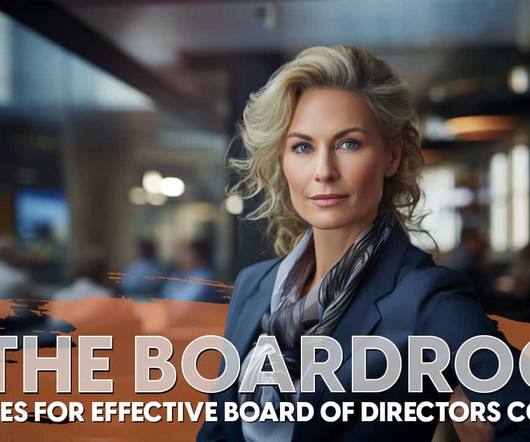In the Boardroom: Strategies for Effective Board of Directors Coaching
N2Growth Blog
DECEMBER 14, 2023
As industries evolve and new technologies emerge, boards must stay current with current trends and adjust their strategies accordingly. By fostering a culture of accountability, the board of directors can create an environment that promotes transparency, efficiency, and ethical conduct, ultimately benefiting the organization.












Let's personalize your content